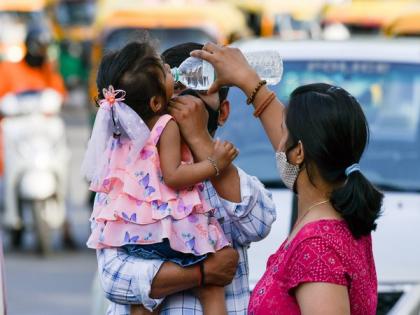India to experience heatwave for next 5 days; IMD sounds 'yellow alert' for Delhi
By ANI | Published: April 27, 2022 09:54 PM2022-04-27T21:54:35+5:302022-04-27T22:05:02+5:30
The India Meteorological Department on Wednesday predicted heatwave conditions in large parts of the country for at least the next five days. A 'yellow alert' has also been sounded for Delhi.

India to experience heatwave for next 5 days; IMD sounds 'yellow alert' for Delhi
The India Meteorological Department on Wednesday predicted heatwave conditions in large parts of the country for at least the next five days. A 'yellow alert' has also been sounded for Delhi.
"Heatwave conditions over East, Central and Northwest India during next five days," IMD said.
The national capital recorded the highest temperature of 44.2 degrees Celsius at Siri Fort Complex on Wednesday.
Speaking to ANI, IMD scientist RK Jenamani said that northern India will likely experience dust storm on April 29, causing a drop in temperature from May 1 onwards.
"Yellow alert in Delhi for the heatwave. There is a possibility of a dust storm in North India on April 29. The temperature will drop from 1st-2nd May. The eastern region will not see heatwave conditions from April 30," he said.
As per the IMD, heatwave conditions in isolated pockets are very likely over Punjab, Haryana-Chandigarh, Delhi, Uttar Pradesh, Rajasthan, Madhya Pradesh, Vidarbha, Chhattisgarh, Bihar,Jharkhand, interior Gangetic West Bengal, interior Odisha and northern parts of Gujarat State.
"Rise by about 2 degrees Celsius in maximum temperatures very likely over most parts of Northwest India during next three days and fall by about 2 degrees Celsius thereafter," it added.
Notably, Northwest India this year recorded the hottest March in 122 years, with an average maximum temperature surpassing the previous record of 30.67 degrees Celsius in 2004.
( With inputs from ANI )
Disclaimer: This post has been auto-published from an agency feed without any modifications to the text and has not been reviewed by an editor
Open in app